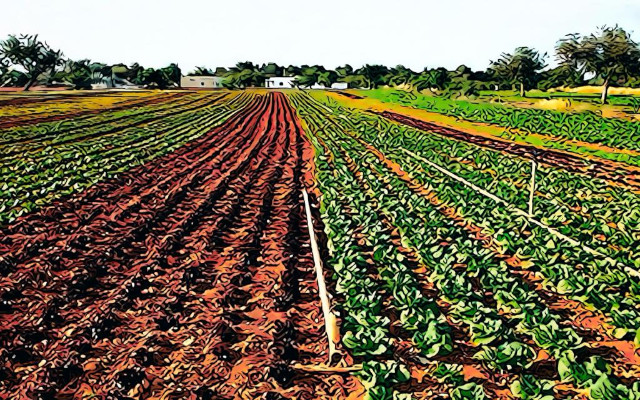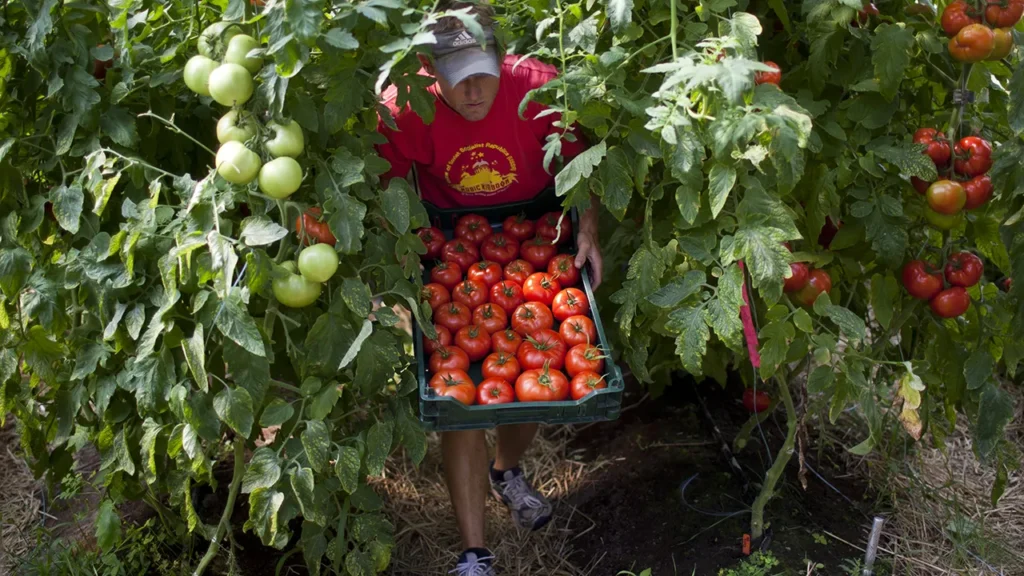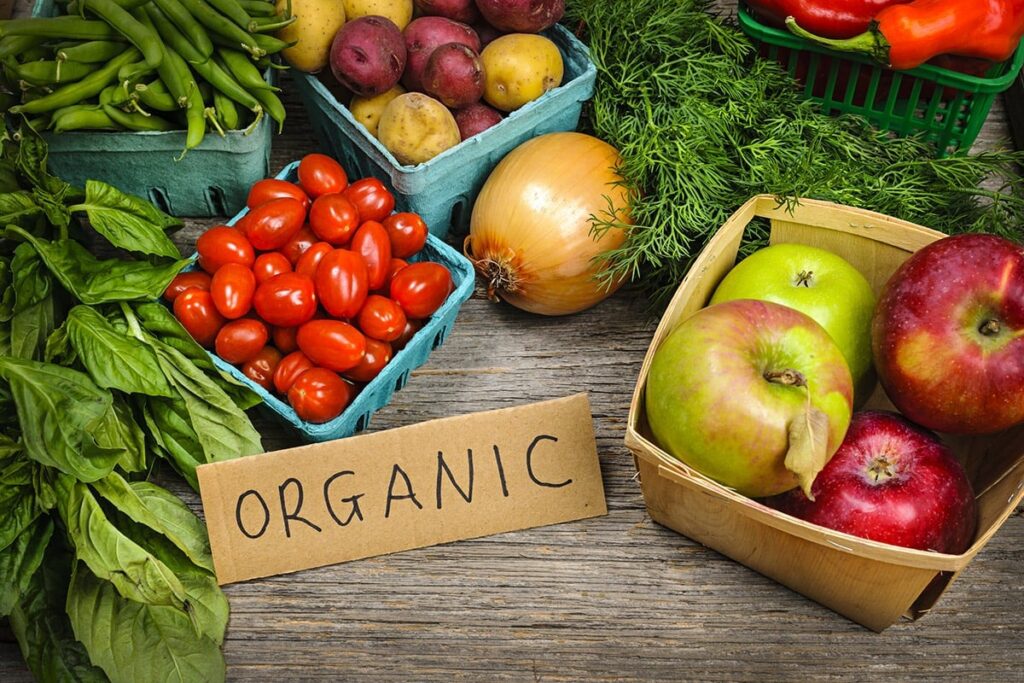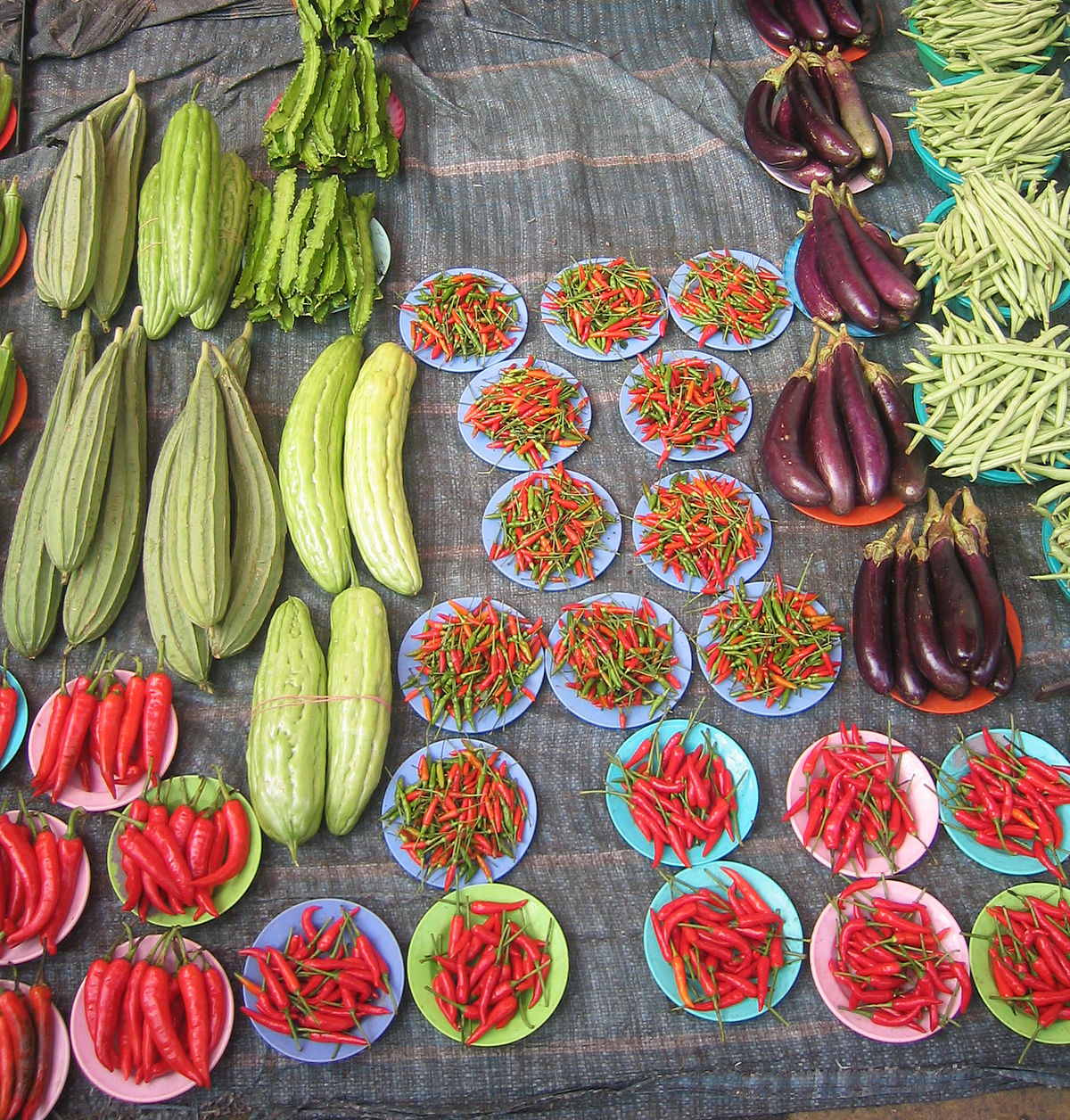Organic farming has emerged as a significant alternative to conventional agricultural practices, garnering attention for its numerous benefits to the environment, human health, and local economies. In this comprehensive analysis, we delve into the surprising advantages that organic farming offers across various domains. In order to research more about this and find out all the benefits of this kind of production you can also get more involved in researching this production, in addition, the internet service provider that manages IT services in San Antonio provides its users with excellent internet with which they can quickly and easily find everything they need, they are interested and explore faster.
Environmental Sustainability

Organic farming stands out for its environmental sustainability, which is increasingly crucial in the face of climate change and biodiversity loss. Unlike conventional farming methods that rely heavily on synthetic pesticides and fertilizers, organic farming emphasizes natural techniques such as crop rotation, composting, and biological pest control. These practices promote soil health, water conservation, and the preservation of ecosystems. Research has shown that organic farms support greater biodiversity, with more diverse plant and animal species thriving in organic landscapes. However, as organic farming advances and develops further, large organic farms are increasingly in demand for freight and logistic services to handle all products and raw materials.
Furthermore, organic farming helps mitigate climate change by reducing greenhouse gas emissions. By avoiding the use of synthetic fertilizers, which contribute to nitrous oxide emissions, and employing practices like cover cropping and reduced tillage, organic farmers enhance carbon sequestration in the soil. This not only mitigates climate change but also improves soil fertility and resilience to extreme weather events. Overall, the environmental benefits of organic farming are substantial and contribute to a more sustainable agricultural system. Aside from these carbon emissions, you can also work towards switching to renewable energy sources to further reduce your environmental footprint, and you can easily achieve this with an experienced electrician in Plano, TX to install useful solar panels on your roof.
Health and Nutrition
Another compelling aspect of organic farming is its potential to improve human health and nutrition. Organic produce is free from synthetic pesticides and genetically modified organisms (GMOs), making it a safer and healthier choice for consumers. Studies have shown that organic fruits and vegetables contain higher levels of antioxidants and essential nutrients compared to their conventionally grown counterparts. Additionally, organic livestock are raised without the use of antibiotics or growth hormones, reducing the risk of antibiotic resistance and exposure to harmful chemicals.
Moreover, by prioritizing soil health and biodiversity, organic farming promotes the cultivation of nutrient-rich crops. Healthy soils rich in organic matter produce crops with enhanced flavor, aroma, and nutritional content. This not only benefits consumers but also supports local food systems and small-scale farmers. The emphasis on natural and sustainable farming practices in organic agriculture aligns with the growing consumer demand for food that is not only delicious but also nourishing and environmentally friendly. Along with that, you are looking for something that will evoke that feeling of gratitude towards nature and environmental awareness, and if you want to contribute to your community in some deeper way, you can hire excellent church architects who will create designs for you for a beautiful cathedral according to your wishes.
Economic Viability
While some may perceive organic farming as niche or less profitable than conventional agriculture, evidence suggests otherwise. In fact, organic farming can offer numerous economic benefits for farmers, rural communities, and consumers alike. One of the key advantages of organic farming is its potential to reduce input costs over time. Although transitioning to organic production may require initial investments in soil health and organic certification, organic farmers often experience lower expenses for pesticides, fertilizers, and other external inputs in the long run. This is a significant economic relief for these successful producers, but if you had some financial difficulties that caused you to take a loan from the bank, now you don’t have to worry, but count on the excellent possibilities of payday loan consolidation to pay off your debts easily and quickly.
Moreover, organic farming presents opportunities for value-added products and niche markets. With the increasing demand for organic food and beverages, organic farmers can command premium prices for their products, providing a competitive edge in the marketplace. Additionally, organic farming fosters local economies by promoting small-scale farming, direct marketing channels such as farmers’ markets and community-supported agriculture (CSA), and agritourism ventures. By investing in organic agriculture, communities can stimulate economic growth, create jobs, and preserve agricultural landscapes for future generations.
Social Impact
Organic farming extends its influence beyond the environmental and economic realms to encompass significant social impacts. One of the key social benefits of organic agriculture is its ability to foster community resilience and empowerment. By promoting local food systems and direct farmer-consumer relationships, organic farming strengthens social ties and creates opportunities for community engagement. Farmers’ markets, community-supported agriculture (CSA) programs, and farm-to-table initiatives not only provide consumers with access to fresh, healthy food but also enable them to connect with the people who grow it. This direct connection promotes transparency, trust, and a sense of belonging within communities, enhancing social cohesion and resilience in the face of economic and environmental challenges.
Moreover, organic farming contributes to social justice by supporting fair labor practices and equitable access to resources. Organic certification standards often prioritize the well-being of farmworkers, ensuring safe working conditions, fair wages, and opportunities for training and advancement. Additionally, organic agriculture tends to be more accessible to small-scale and family farmers, reducing barriers to entry for historically marginalized communities. By promoting diversity and inclusion within the agricultural sector, organic farming advances social equity and empowers individuals and communities to participate fully in food production and decision-making processes. This uniquely connects producers and various small families to achieve a quality community and change the system, and in order to make the whole community work there are numerous pages and forums that are taken care of by experienced WordPress maintenance where you can find a lot of other like-minded people and join this great movement.
Biodiversity Conservation

Organic farming plays a vital role in biodiversity conservation, protecting and enhancing the variety of plant and animal species essential for ecosystem health and resilience. Unlike conventional farming methods that rely heavily on monoculture crops and chemical inputs, organic farming emphasizes biodiversity through practices such as crop rotation, polyculture, and habitat preservation. By cultivating diverse crops and creating habitat corridors, organic farmers provide refuge and resources for pollinators, beneficial insects, and other wildlife. This useful organization of land greatly helps the further cultivation and success of plant species, because with this, entire plots can be divided into certain areas and thus protected and treated in a proper way, and if necessary, with excellent asphalt maintenance, roads can also be built through these small plots as tractors would be able to reach them more easily.
Furthermore, organic farming supports agroecological principles that promote ecological balance and harmony. By minimizing the use of synthetic pesticides and fertilizers, organic agriculture reduces the negative impacts on non-target organisms and ecosystem functioning. Research has shown that organic farms support higher levels of species richness and abundance compared to conventional farms, fostering resilient ecosystems capable of adapting to environmental changes and disturbances.
Climate Resilience
In an era of escalating climate change and extreme weather events, the importance of climate resilience in agriculture cannot be overstated. Organic farming offers promising solutions for building resilience to climate-related challenges while mitigating greenhouse gas emissions. One of the key strategies employed in organic agriculture is soil carbon sequestration, which involves capturing and storing atmospheric carbon dioxide in the soil through practices such as cover cropping, composting, and reduced tillage. Special treatments achieve significant results in order to maintain a good economic impact on the environment, and in order to accompany all this and withstand being constantly in the field, farmers often rely on the exceptional possibilities of recovery wear, which is there to heal all the pain and stress accumulated from everyday work.
Moreover, organic farming practices such as agroforestry, agroecology, and water management techniques enhance ecosystem resilience to climate variability and extremes. By diversifying crops and landscapes, organic farmers reduce the risks associated with crop failure and pest outbreaks, thereby increasing the adaptive capacity of agricultural systems. Additionally, organic agriculture promotes water conservation and soil moisture retention, mitigating the impacts of droughts and floods on crop yields and livelihoods. Some of these problems are easily solved by afforestation, which is why many communities are working on special models with miniature cars with special RC bodies, plots, and farms to specify and explain the movement of carbon, but also the importance of forests in this movement and other very important cycles in the atmosphere and nature.
Policy Implications
The adoption and promotion of organic farming practices have significant implications for agricultural policy at local, national, and international levels. Policymakers play a crucial role in creating an enabling environment for organic agriculture by implementing supportive policies, regulations, and incentives. Key policy measures include providing financial support for organic transition and certification, investing in research and extension services for organic farming, and incorporating organic principles into agricultural education and training programs. Many campaigns and programs with smiling farmers with their caps from wholesale hats, serve to promote the notion and benefits of organic agriculture as well as its bright future in the later development.
Furthermore, policymakers can incentivize the adoption of organic practices through market-based mechanisms such as subsidies, tax incentives, and public procurement policies. By creating a level playing field and rewarding farmers for ecosystem services and environmental stewardship, policymakers can encourage broader adoption of organic farming practices and facilitate the transition to more sustainable food systems. Additionally, international agreements and initiatives such as the Organic Agriculture Action Plan and the United Nations Sustainable Development Goals provide frameworks for promoting organic agriculture as a key strategy for achieving food security, environmental sustainability, and rural development on a global scale. In the end, politics often boils down to keeping experienced and good farmers just as important as the men in combat clothing who serve to defend the country.
Consumer Awareness
Consumer awareness and demand play a pivotal role in driving the adoption of organic farming practices and shaping the future of the organic food industry. As consumers become more informed about the health, environmental, and social benefits of organic agriculture, they are increasingly choosing organic products over conventional alternatives. This growing demand for organic food and beverages creates market opportunities for organic farmers, stimulates innovation in organic production and processing, and expands access to organic products for consumers of all income levels. Also, these movements inspire many to dedicate themselves to the cultivation of some plant species in their home, contributing at least a fraction to their healthy diet, they can achieve this with excellent remodeling contractor with which they can renovate their home and corner to fit several pots of different plants.
Moreover, consumer education and advocacy efforts are essential for promoting transparency and integrity in the organic food industry. By advocating for strong organic standards, labeling regulations, and certification processes, consumers can ensure that organic products meet rigorous criteria for environmental sustainability, animal welfare, and social responsibility. Additionally, consumer engagement with local food systems, farmers’ markets, and community-supported agriculture (CSA) programs strengthens connections between producers and consumers, fosters trust and accountability, and promotes a more sustainable and resilient food system for future generations. In addition, they are working on ensuring that all this organically produced and marketed food is packaged in an ecological way, which is why a useful product design studio can help in creating ideas for environmentally friendly products and unique packaging.
Technological Innovation

Technological innovation holds tremendous potential for advancing organic farming practices and addressing the challenges facing agriculture in the 21st century. From precision agriculture and sensor technologies to genetic engineering and biotechnology, a wide range of innovations can enhance the efficiency, productivity, and sustainability of organic agriculture. One area of innovation is the development of organic-compatible pest and disease management tools, such as biopesticides, pheromone traps, and microbial inoculants, which offer effective alternatives to synthetic chemicals. However, in order to properly handle such hazardous materials, it is very important that farmers devote themselves to some of excellent educational online courses where they will acquire the necessary knowledge to handle these and other chemicals.
Furthermore, advancements in soil health management, such as soil carbon sequestration techniques, cover cropping systems, and precision nutrient management, can improve soil fertility, water retention, and resilience to climate change. Additionally, digital technologies such as blockchain, remote sensing, and data analytics have the potential to enhance traceability, transparency, and accountability throughout the organic supply chain, ensuring the integrity and authenticity of organic products from farm to fork. By embracing technological innovation and research-driven approaches, organic farmers can continue to innovate and adapt to evolving environmental, social, and economic conditions, while preserving the principles of organic agriculture and the integrity of the organic label. In addition, other members of the community can dedicate themselves to preserving their environment and treating it properly, by counting on responsible junk removal in Philadelphia, PA that treats garbage in a proper and ecological way.
Conclusion
In conclusion, the surprising benefits of organic farming are manifold and far-reaching, encompassing environmental sustainability, human health, social impact, biodiversity conservation, climate resilience, policy implications, consumer awareness, and technological innovation. From promoting soil health and biodiversity to enhancing nutrition and supporting local economies, organic agriculture offers holistic solutions to the challenges facing our food system. As we strive to build a more sustainable, resilient, and equitable future, the adoption and promotion of organic farming practices are essential for creating a healthier planet and thriving communities for generations to come. That’s why it’s worth committing to sustainable and organic agriculture and start growing healthy and environmentally friendly food, if you join all these movements, don’t forget to store your jewelry in a compact ring case so you don’t damage or lose it.
